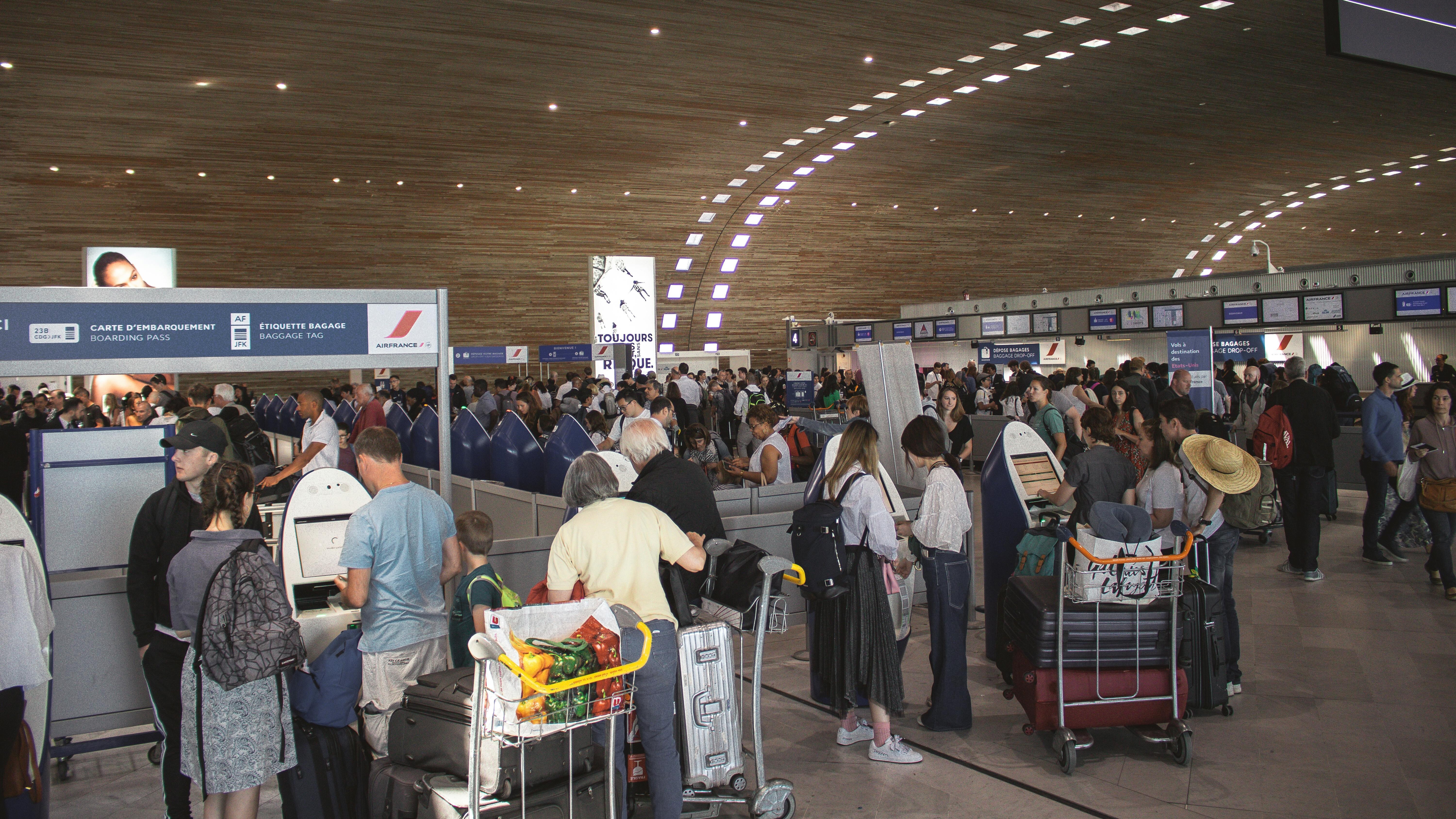
Strange objects on the plane: how to fly with skis and snowboards
Thursday, September 19, 2024
Are you done with summer heats and looking forward to the winter season? Then you’re probably already thinking about your next skiing or snowboarding trip and trying to figure out how to travel with all that sports equipment - it’s not so easy, we know. So let us make it easier for you, here's what you need to know about travelling with skis and snowboards by plane.
Can you fly with skis and snowboards?
Yes, you can! With most airlines, the transportation of sports equipment, like skis and snowboards, is permitted. However, the way it’s done depends on the airlines you fly with. Some airlines (like British Airways or KLM) allow you to check in your skis or snowboards as a part of or instead of your checked luggage allowance. Yet others, typically low-cost airlines (like EasyJet or Wizz Air) charge additional fees for flying with sports equipment.

When are ski bags included in your fare?
Most full-service airlines allow you to check in your skis and snowboards as the luggage that’s included in a standard fare. That is, as long as they conform to the size and weight restrictions - this weight limit can often be increased by an extra charge. And if you’re not one for light packing and that’s still not enough, an additional luggage can usually be added to your ticket for a regular price. BUT, be aware that the size and weight restrictions can differ between airlines, so make sure to check the airline you fly with! Here’s a look at some of the full-service airlines and their ski equipment policies.
- British Airways ski luggage restrictions:
You can take your skiing and snowboarding equipment as part of your checked luggage included in your fare. It must fit within the 190 x 75 x 65cm size limit, and the weight limit of 23kg for Economy or 32kg for Business and First Class. To ensure your sports equipment travels with you, make sure to specify that upon booking or no later than 72 hours before departure.
- Air France ski luggage restrictions:
You can take your skiing and snowboarding equipment as part of your checked luggage, as long as its total dimensions don’t exceed 300cm (length + width + height) or the weight limit of 23kg for Economy and 32kg for Business Class. If you travel in a group of at least 10 people, you must submit a request at least 48 hours before departure.
- KLM ski luggage restrictions:
You can bring your equipment instead of your checked luggage, as long as its total dimensions don’t exceed 300cm or the weight limit of 23kg for Economy and Premium Comfort Class, or 32kg for Business Class.
- Delta Air Lines ski luggage restrictions:
You can bring your equipment as a checked luggage, as long as its total dimensions don’t exceed 292cm. It can weigh up to 23kg in total, or up to 32kg for an overweight luggage fee.
- American Airlines ski luggage restrictions:
You can bring your equipment as checked luggage. It can be divided across two bags, which cannot exceed the size of 158cm, and can weigh up to 23kg in total, or up to 32kg for an overweight luggage fee.
- Swiss Air Lines ski luggage restrictions:
You can bring your equipment as an addition to your luggage allowance free of charge. However, this does not apply to Economy Light fares and the ski luggage can only contain your sports equipment and nothing else. It can weigh up to 32kg or measure up to 3.5m in length.
When do you have to pay extra for ski equipment?
Many low-cost carriers do offer the option to transport your equipment, but for an additional sports equipment charge. This means you have to purchase additional luggage in order to be able to take it with you. Remember, those charges are usually lower when purchased online (instead of at the airport) and the space for oversized luggage on the plane is limited, so make sure to plan your packing in advance! Here’s a look at some low-cost carriers and their policies.
- WizzAir ski luggage restrictions:
You can travel with your skiing and snowboarding equipment for an additional charge. This can cost from £11 to £127 for a 20kg allowance, depending on the season. Such luggage can’t exceed the size of 149 x 119 x 171cm.
- easyJet ski luggage restrictions:
You can travel with your equipment for an additional charge. This can cost from £37 with a 20kg weight limit.
- Ryanair ski luggage restrictions:
You can travel with your equipment for an additional charge. This can cost from £45 with a 20kg weight limit.
- TUI ski luggage restrictions:
You can travel with your equipment for an additional charge. You need to apply for a special luggage transport while booking - this can cost from £17 with a 32kg limit.
- Transavia ski luggage restrictions:
You can travel with your equipment for an additional charge. This can cost from £36 with a 15kg weight limit.

Can you pack something else in the ski or snowboard bag?
Sometimes. Some airlines, like KLM or Swiss Air Lines, might require the ski/snowboard bags to only contain the equipment: one pair of skis or a snowboard, one pair of ski poles, one pair of boots and a helmet - simply put, you can’t fill the free space with your clothes or other belongings. But others, British Airways among them, are more lenient and accept personal belongings in the sports bags. Again, as you can see, this can vary between carriers, so make sure to double check on your carrier’s website!
Can you bring ski equipment on board?
Some of it you can! Skiing boots can often also be taken as carry-on luggage, if packed safely and within the size and weight limit. Same goes for the helmet. So in case you’re on the brink of your weight limit trying to fit all your equipment, or just can’t seem to let them go, this might be a solution for you.
How to check in ski bags?
Ski and snowboard bags are often considered oversized luggage, because of their dimensions, so there is often a designated counter for checking in such luggage. But don’t worry, proceed to your regular check-in counter, your luggage will be weighed there and you will be directed further by airport personnel.
Whenever you find yourself in a need of a winter getaway, knowing different ways to travel with ski equipment makes your planning that much easier. So next time, just check which of these options applies to you and slide into the snowy bliss effortlessly.
Flight compensation for delayed and cancelled flights
Did you know that according to EU and UK regulations, you can claim up to £520 per passenger if your flight was delayed by at least 3 hours or cancelled within the last 14 days prior to the planned departure? If this happened to you and the disruption was caused by the airline itself and not extraordinary circumstances, like bad weather conditions, you might be entitled to compensation.
Check if you are eligible and - if yes - claim it online using our Claim Calculator!



Did you like this content ?
Thanks you made our day!
Therapy is expensive - help us be better!
Well received, thanks!